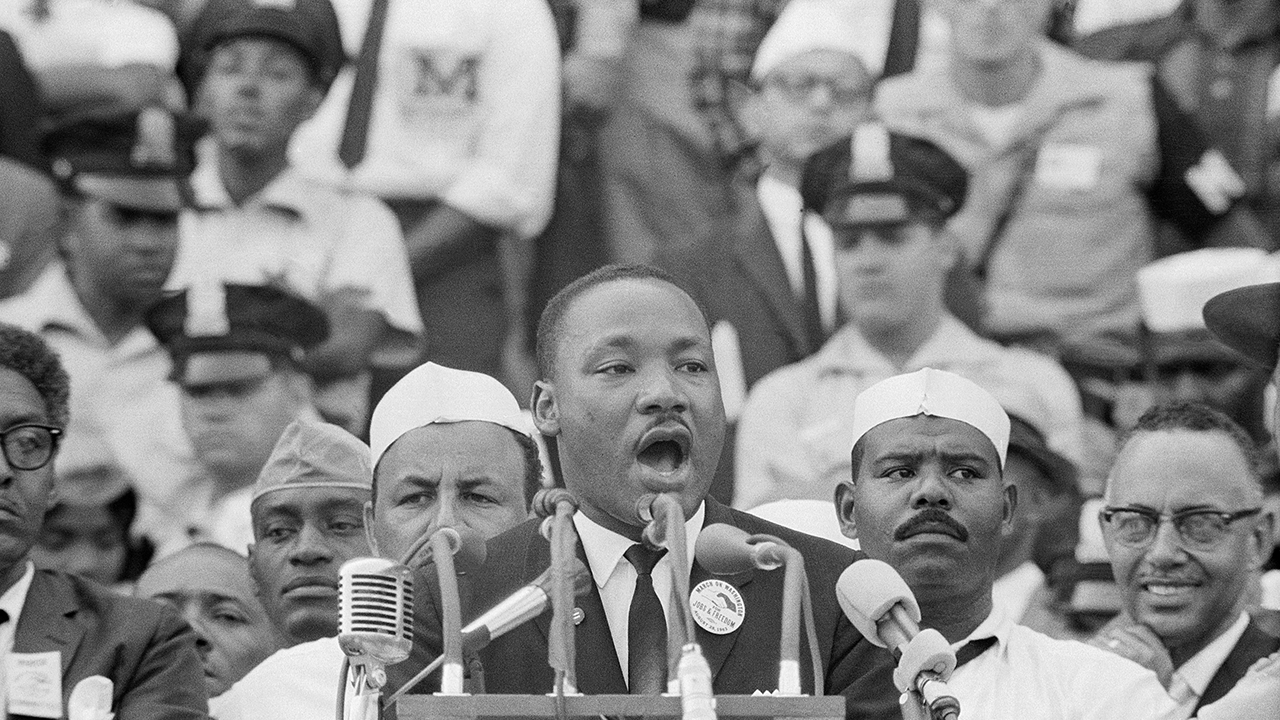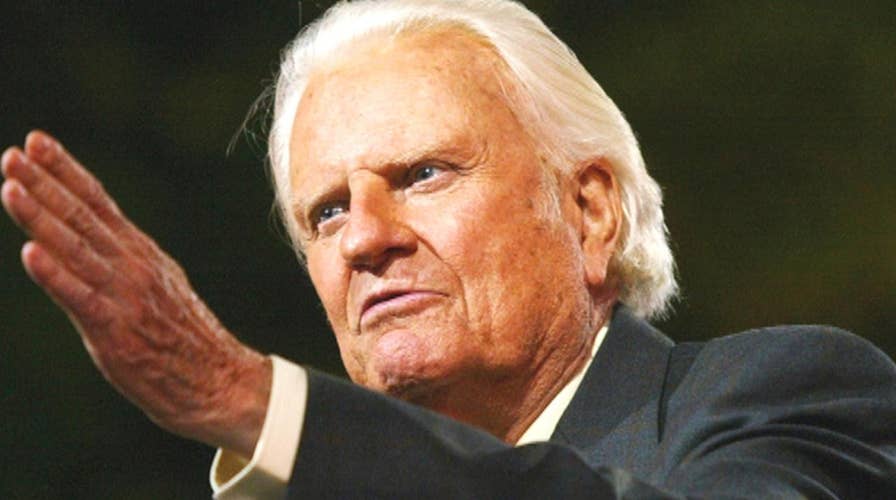Billy Graham’s revelatory 2010 Fox News interview
In a 2010 interview with Fox News, Billy Graham shared his reflections on death, his regrets, becoming a preacher, befriending the Bush family and more.
The following is an excerpt from “A Prophet with Honor” to be released March 6, 2018:
For many years, Billy Graham has said repeatedly and convincingly that death held no terror for him. That fearlessness was rooted, of course, in his absolute confidence that death was but a passage to the glorious eternal life that he had invited millions of his fellow humans to share with him. On at least one occasion he had spoken of heaven in terms harking back to his earliest preaching. In 1992, he said “I don’t think I’ll miss anything about earth, because I think everything that is needed for my happiness and well-being will be in heaven. If playing golf makes me happy, there’ll be a golf course.”
More typically, Graham spoke of the ineffable but surely matchless glories of being in the presence of God the Father, Son and Holy Spirit and reunion with the redeemed of the ages. He talked of questions he wanted to ask God when they had a few minutes together, such as why there is suffering in the world and whether those who have never heard the Christian gospel will truly be damned forever and ever. He wondered, no doubt, about what people would say of him in the days and decades after his death, but only one accolade seemed truly important. “I want to hear one person say something nice about me, and that’s the Lord, when I face him. I want him to say to me, ‘Well done, thou good and faithful servant.’ I am not sure I am going to, but that’s what I’d like to hear.”
Surely, few Evangelical Christians doubted Billy Graham would receive that Ultimate Compliment. But many, both within and without those circles, had a more immediate question. In the famed evangelist’s waning years, it became common for observers of the religious scene to speculate as to who would be “The Next Billy Graham.” The answer is quite likely, “No one.”
The remarkable success, scope, and complexity of the movement in which Billy Graham contributed so much make it unlikely that any single figure could ever match or exceed his influence over it.
Billy Graham is not, like the Pope or the Archbishop of Canterbury, an office in the Christian church that must be filled by the likeliest candidate. Graham rose to prominence at a rather low point in the history of Evangelical Christianity, when candidates for leadership were relatively few and it was easier for one person to stand out above others. Half a century later, Evangelicals had become a movement at least equal in size and strength to Catholics and “Mainline” Protestants in the United States, and most of the Christian missionary work conducted throughout the world was done under the aegis of some Evangelical/Fundamentalist/ Pentecostal denomination or parachurch agency.
Many faithful and talented men and women contributed mightily to that remarkable transformation. Still, from his crusades to the great international conferences, to the fostering of religious freedom in godless regimes, to the training of tens of thousands of individual itinerant evangelists, to the pioneering use of media, it was Billy Graham who, more than any other, shaped and inspired that movement. And, to the world’s good fortune, he consistently manifested an expansive spirit that reached out to enlist an ever-widening circles of individuals and groups to join him in that effort. From revivals supported by small knots of Fundamentalists and Evangelicals in crusades and conference and global missions in which Christians of every stripe and color and culture work together in common cause, Graham was a powerful, even unique force for Christian ecumenism. Individual lives and nations, the world, and the Church of Jesus Christ are richer for that fact.
The remarkable success, scope, and complexity of the movement in which Billy Graham contributed so much make it unlikely that any single figure could ever match or exceed his influence over it. It is possible, of course, that ten, fifty, or a hundred years from now, some young man or woman with just the right combination – a combination easy to describe but apparently harder to embody – will manifest comparable achievement and leadership. It may be that developments in transportation and communication will enable this New Light to shine more brightly than Billy Graham’s ever could, just as jet power and radio and television and satellite and computer technology enabled him to reach more people than any of his predecessors could have dreamed possible.
But unless and until that happens, William Franklin Graham, Jr., can safely be regarded as the best who ever lived at what he did – “a workman,” as Scripture says, “who needeth not to be ashamed.”










































